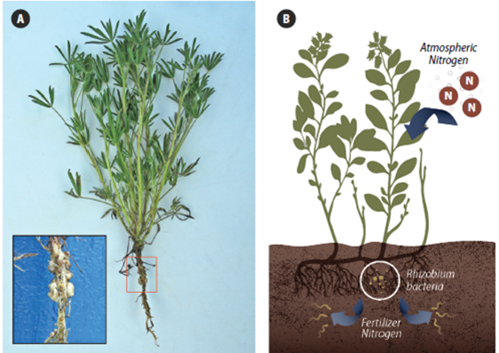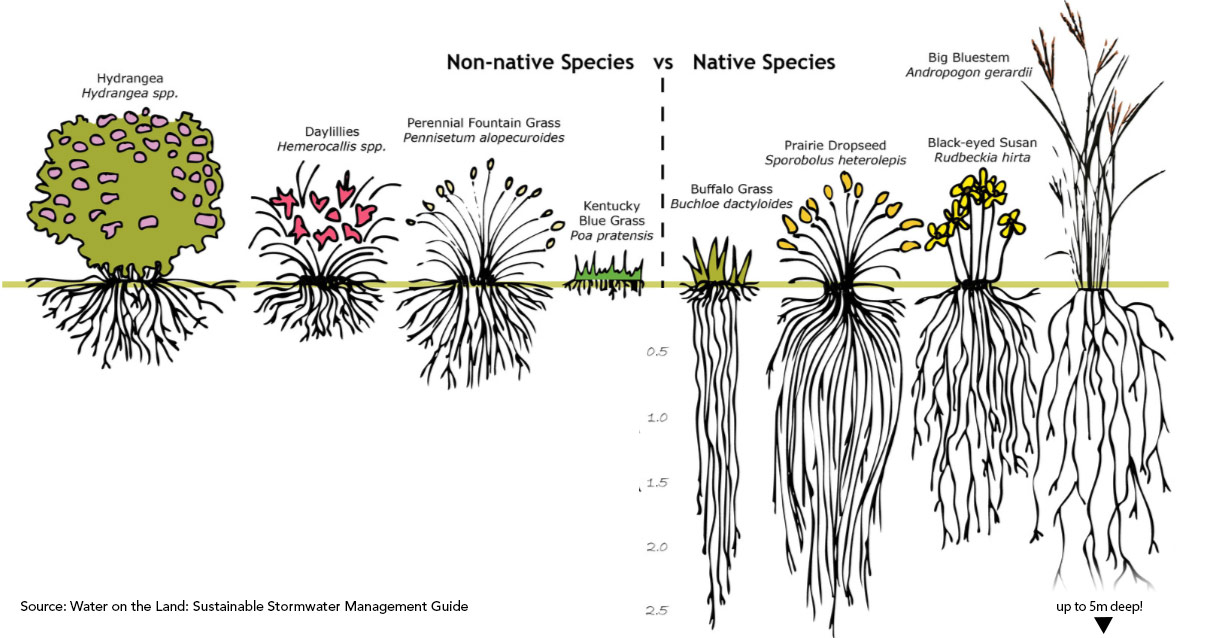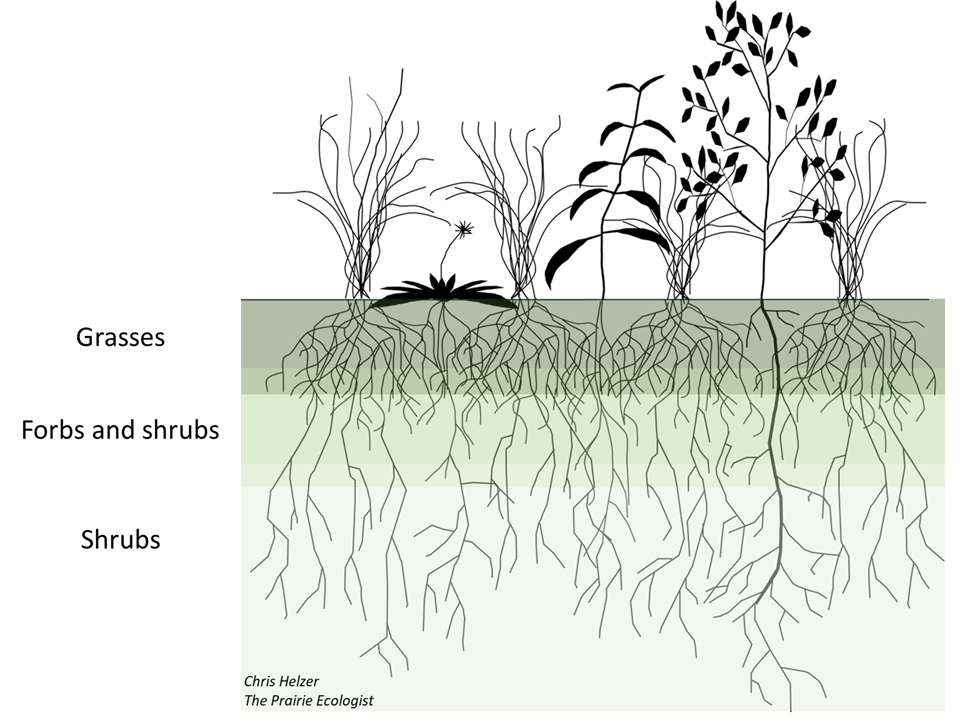15+ root systems of prairie plants
These species are well adapted to. Root Systems of Prairie Plants Prairies are often called the upside-down forest since the majority of the biomass the plant parts of the system is underground up to 70.

Digging Deep Reveals The Intricate World Of Roots
These Plants Adapt To Local Climate And Ecological Conditions.

. And 4 a zone of maturation. We have it up on the wall in the classroom all the. The root cap is a cup-shaped group of cells at the tip.
The plants being used for roadside revegetation are prairie species native to Iowa. I believe that native plant roots make these prairie plants resilient in the landscape. Forbs for erosion control.
The Tallgrass Prairie Center uses 10-foot-deep pots to grow massive prairie root specimens. The large root systems of silphiums play an important role in a prairie. Bermuda can grow very deep roots but of course it can because it is a prairie plant.
They purposefully picked a lawn grass with shallow. Oakland County Michigan All ways moving forward. Six plants were examined.
So there isnt a lot of research supporting the assumption that plants with deep roots like this are actually using them to draw water from deeper in the soil during times of drought. Prairies are sometimes called upside-down forests because much of the plant and animal life is below ground. The deepest root found was at 28 inches and 15 inches was determined as the average maximum depth.
Many prairie plants have roots 5 to 15 feet deep. We have distributed them to over 30 nature centers museums schools and Natural Resource. 12 The balsam root.
3 a zone of elongation. They are adapted to our local soils rainfall and nutrients. Root Systems of Prairie Plants The fundamental basis for encouraging use of native plant species for improved soil erosion control in streams and stormwater facilities lies in the fact that.
Heidi Natura created the Root Systems of Prairie Plants diagram in 1995 as a way to document and share the wonder and potential of what we cannot see in our prairie ecosystems. Many prairie plants have roots 5 to 15 feet deep. In the 2011 and 2012.
Depends on the lawn grass and the type of the soil. 2 a zone of division. Root Systems of Prairie Plants What is special about native plants.
1 a root cap. The roots of plants have four regions. Extensive root systems improve the ability of the soil to infiltrate water reducing runoff and wet conditions.

Roadside Revegetation An Integrated Approach To Establishing Native Plants And Pollinator Habitat Ecosystem And Vegetation System Management Environmental Review Toolkit Fhwa

Notes From The Field Teton Conservation District

Root Systems Of Prairie Plants R Permaculture

A Deep Rooted Prairie Myth The Prairie Ecologist

Bnqgjn Qxrd14m

Digging Deep Reveals The Intricate World Of Roots

Native Plants Grasses

Root Systems Of Prairie Plants R Permaculture

Prairie Fire Red Switchgrass Finegardening Ornamental Grasses Grasses Landscaping Perennial Grasses

The Land April 15 2022 Southern Edition By The Land Issuu

Root Systems Of Prairie Plants From Download Scientific Diagram

Root Systems Of Prairie Plants From Download Scientific Diagram

The Root Systems Of Different Prairie Plants Modified From United Download Scientific Diagram

Bnqgjn Qxrd14m

A Deep Rooted Prairie Myth The Prairie Ecologist

Bnqgjn Qxrd14m
Native Plantings City Of Elgin Illinois Official Website